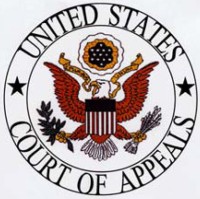 Arsenal Attorneys: A National Firm - Offices in Virginia and California
Arsenal Attorneys: A National Firm - Offices in Virginia and California
Arsenal Attorneys: A National Firm - Offices in Virginia and California
Arsenal Attorneys: A National Firm - Offices in Virginia and California
CONTACT US TODAY
800.819.0608
American Suppressor Association Visits Capitol Hill
 This week the American Suppressor Association (ASA) conducted meetings with on Capitol Hill to advance reform of the National Firearms Act and improvement of BATFE operations. The ASA delegation included representatives of industry leaders, including Silencer Shop owner Dave Matheny. ASA also organized a demonstration of silencers by manufacturers Silencerco and Yankee Hill at the National Rifle Association Headquarters Range (pictured), which Arsenal Attorneys attended. The demonstration gave staff members from the US Congress the opportunity to examine silencer technology first hand.
This week the American Suppressor Association (ASA) conducted meetings with on Capitol Hill to advance reform of the National Firearms Act and improvement of BATFE operations. The ASA delegation included representatives of industry leaders, including Silencer Shop owner Dave Matheny. ASA also organized a demonstration of silencers by manufacturers Silencerco and Yankee Hill at the National Rifle Association Headquarters Range (pictured), which Arsenal Attorneys attended. The demonstration gave staff members from the US Congress the opportunity to examine silencer technology first hand.
ASA's legislative priorities include 41P, ATF eFile, and the Hearing Protection Act which calls for removing silencers from the National Firearms Act.
Arsenal Attorneys is a member and sponsor of the American Suppressor Association.
41P: Is an Executive Order on NFA Firearms Likely?
We've received questions regarding the likelihood of the Obama Administration announcing a final order for the enactment of its so-called 41P proposal concerning trusts and firearms regulated under the National Firearms Act (NFA), including suppressors, short barrels, and full auto firearms. Arsenal Attorneys follow this and many other issues closely because we have set a goal of keeping our clients well informed about firearms regulations. For this reason, our lawyers begin each client consultation for our Arsenal Gun Trust with a briefing on current events. We provide a balanced view so our client can form his/her own informed opinions. We also alert clients to the many false rumors in gun control politics. Here is a summary of how we're currently advising clients on 41P:
- Arsenal Attorneys have monitored 41P closely for nearly 3 years since rumors first circulated about such an executive order.
- We have many well-informed sources in the firearms industry and the government who believe a final order on 41P will not happen.
- Inside ATF, a non-public alternative to 41P is under consideration, and that internal debate has delayed a final order.
- As ownership of NFA firearms has increased, opposition to 41P in the US Congress has increased.
- The National Sheriffs' Association have formally announced their opposition to 41P because it would increase red tape without improving public safety--Arsenal Attorneys is the only source to bring this fact to light.
- On several occasions ATF has set a date to announce a final order, but they have missed that self-imposed deadline over and over and over again. Each time a deadline is skipped, ATF is required to post a new date for a final order. ATF had posted a date of "12/00/2015", then it changed that date to "01/00/2015." Some observers have assumed this latest date change is somehow significant, but they have no other evidence to show this new date is different from the previous deadlines that proved meaningless.
- If a final order is ever announced, ATF had informally confirmed the public would receive 60 days' notice, and applications to register new NFA firearms in process would not be subject to 41P.
- When there is any doubt or uncertainty, we advise our clients to be proactive. Anyone interested in acquiring NFA firearms should not delay.
We are serving clients everyday by helping them create an Arsenal Gun Trust for NFA firearms, and in most states the Arsenal Gun Trust can act as an estate plan for an entire gun collection, including non-NFA firearms and firearms accessories. To learn about the Arsenal Gun Trust, review our website for a tutorial and FAQs. You can begin the process of requesting our Arsenal Gun Trust services by completing our online questionaire.
Arsenal Attorneys serves clients in every state where NFA firearms are permitted. Contact us with any questions.
Arsenal Attorneys’ George Lyon on Al Jazeera 6pm EST
 George Lyon will discuss gun violence and gun ownership this evening during the “Inside Story” program hosted by Ray Saurez on the Al Jazeera network at 6 pm EST. Mr. Lyon’s counterpart for the discussion will be gun control activist Vincent DeMarco.
George Lyon will discuss gun violence and gun ownership this evening during the “Inside Story” program hosted by Ray Saurez on the Al Jazeera network at 6 pm EST. Mr. Lyon’s counterpart for the discussion will be gun control activist Vincent DeMarco.
George Lyon has been at the forefront of Second Amendment issues, particularly in the nation’s capital. In 2003 he was one of the original plaintiffs in the landmark case that resulted in the United States Supreme Court confirming that the Constitution guarantees an individual the right to own a functional firearm. That decision, District of Columbia v. Heller, overturned DC’s prohibition on owning a handgun and has become the bedrock for Second Amendment litigation. In 2009, Mr. Lyon joined with three other plaintiffs and the Second Amendment Foundation to challenge the District of Columbia’s absolute ban on carrying a firearm for personal protection outside the home. That case, Palmer v. District of Columbia, resulted in the first issuance of DC concealed carry licenses in some 40 years.
Mr. Lyon has extensive firearms training in each of handgun, shotgun and rifle. He is certified by the District of Columbia Metropolitan Police Department as a DC Concealed Carry Instructor. He is also certified as a firearm instructor by the Maryland State Police. He holds NRA Firearm Instructor certifications in Pistol, Personal Protection in the Home, and Range Safety Officer. He holds a federal firearms collector’s license and is the President of the DC Chapter of the Community Association for Firearms Education. Mr. Lyon has written and spoken on a variety of firearms and self-defense legal issues. Mr. Lyon has testified frequently before the DC City Council on firearms related issues. His advocacy was instrumental in effecting positive changes in several provisions of DC law, including relaxation of ammunition restrictions, allowing possession of firearms in the District in the course of training, and conforming DC law with federal law relating to armor piecing handgun ammunition and permissible shotgun barrel length.
Arsenal Attorneys is proud to have George Lyon as part of our law practice. He represents clients in civil litigation, business matters, firearms regulations, and other areas of law.
Must See TV: Strange Inheritance on Fox Business
 Arsenal Attorneys have a new favorite TV show. The Fox Business network provides this description of the series: "Love, loss, and a legacy left behind. 'Strange Inheritance' is a ground-breaking new reality program from the Fox Business Network. From multi-million dollar treasures, to truly bizarre collections and one-of-a- kind artifacts, this series tells the stories of how families decide what to do with their newly acquired possessions. Shocking secrets are discovered, gut-wrenching decisions are made about priceless heirlooms and fascinating histories are uncovered along the way."
Arsenal Attorneys have a new favorite TV show. The Fox Business network provides this description of the series: "Love, loss, and a legacy left behind. 'Strange Inheritance' is a ground-breaking new reality program from the Fox Business Network. From multi-million dollar treasures, to truly bizarre collections and one-of-a- kind artifacts, this series tells the stories of how families decide what to do with their newly acquired possessions. Shocking secrets are discovered, gut-wrenching decisions are made about priceless heirlooms and fascinating histories are uncovered along the way."
A recent episode particularly caught our attention. "Double-Barreled Inheritance" featured the inheritance of a large gun collection amassed over many years. The collector was somewhat secretive about his passion for collecting. His collection was a private source of pride and enjoyment, but it proved to be historically important. Following his death, his family left the mysterious collection untouched behind the locked doors of the gun room.
This story brings many questions to mind. Will your heirs know the significance, value, legality, safety, and location of your firearms? Will your firearms go to your hand-picked heirs? If they do not survive you or if they are unable or unwilling to inherit your guns, have you provided a contingency plan? These and many otherl issues should be addressed in an estate plan specifically designed for firearms, like the Arsenal Gun Trust by Arsenal Attorneys.

Arsenal Attorneys serves clients in nearly every state. Our work preparing Arsenal Gun Trusts for clients has been featured in the Wall Street Journal because of our expertise in estate planning for nontraditional assets. Further, the Arsenal Gun Trust is a renowned solution for firearms regulated by the National Firearms Act, including suppressors, short barrels, and full auto.
Contact us to learn how we can help you as well your loved ones who will one day inherit your firearms. Don't let your gun collection become a mystery.
Restoring Your Firearms Rights following a Conviction in Virginia
If you have been convicted of a felony by a Virginia State Court then you are prohibited from purchasing, possessing, or transporting firearms or ammunition. However, Virginia law provides a method for you to have your gun rights restored.
The process is relatively simple, but requires two steps. First, you must have your political civil rights restored. These are the rights to vote, hold political office, serve on juries and be a notary public. Restoration for certain non-violent felonies is automatic following release from incarceration and parole supervision, subject to paying any outstanding court costs. If you have been convicted of other more serious felonies, including violent felonies, you must apply to the Governor to restore your political civil rights. If the Governor decides to do so, all of your civil rights will be restored except for your firearms rights.
To restore your firearms rights, you must file a petition with the circuit court in the jurisdiction in which reside or if you live in another state, you must file your petition in the last Virginia jurisdiction in which you were convicted of a felony. Your petition will include a number of documents, including proof that your political civil rights have been restored, the court judgement of your conviction, your criminal history and driving record, proof that you completed your sentence and have been discharged from parole, and letters of recommendation attesting to your character and rehabilitation.
Filing the petition for restoration of your firearm rights does not guarantee that the judge will grant your request. The judge will consider such things are how serious was your offense, any other offenses for which you have been convicted, how much time has elapsed since your conviction, and what you’ve done with your life since your release from confinement.
Note that if your felony conviction stems from a federal conviction, restoration of your firearm rights is likely not going to be possible. Although federal law provides a way to restore your firearm rights, since 1992, Congress has denied federal funding to process the necessary applications to restore firearm rights to persons convicted of federal offenses. However, if your federal conviction was long ago and depending on your circumstances, there may be a means to restore your firearms rights via a federal court lawsuit.
Arsenal Attorneys can help guide you through the process and prepare the necessary paperwork to restore your political and firearm rights. Contact us for more information.
DC CIRCUIT HELLER II RULING, THE GOOD, THE BAD AND THE UGLY
 By George L. Lyon, Jr, Arsenal Attorneys
By George L. Lyon, Jr, Arsenal Attorneys
On September 18 the United States Court of Appeals for the District of Columbia Circuit released its second decision in Heller v. District of Columbia (“Heller II”) striking down four aspects of DC’s gun registration program and upheld several other provisions.
The split decision of the three judge panel held that the requirements (1) to re-register firearms every three years, (2) to pass a test on DC gun laws to register a firearm, and (3) to bring a firearm to the registration office for inspection at the time of registration were unconstitutional. The court also invalidated DC’s prohibition on registering more than one handgun a month.
On the other hand, the court upheld the DC requirements that long guns be registered, that applicant’s personally appear at the Firearms Registration Office to be photographed and fingerprinted, and that applicants view a one-hour gun safety training video to register a firearm. The court also upheld DC’s $35 fee for fingerprinting and $13 per firearm registration fee. The DC Circuit had previously upheld in a 2-1 decision DC’s requirement to register handguns and its prohibition of so-called assault weapons.
Senior Judge Douglas Ginsburg wrote the Court’s opinion. He was joined by recent Obama appointee Judge Patricia A. Millett. Judge Millett happens to know something about self-defense, being a second-degree black belt. Judge Karen LeCraft Henderson dissented in part and would have upheld each of DC’s firearm regulations.
There is both good and bad in the court’s majority opinion. First the good. The good is that the court actually conducted a reasoned analysis of the challenged regulations and of DC’s arguments in support, rather than simply accepting DC’s rationale for adopting them. The bad part of the decision is that the court adhered to a “substantial evidence” standard by which it would uphold a challenged regulation if DC could show “substantial evidence” that the challenged regulation addresses a meaningful harm. This is a standard that grants great deference to the judgment of the legislators, and one which is not appropriate when fundamental Constitutional rights are at stake. However, it is not a wholly toothless standard.
Significantly, the court rejected DC’s claim that the regulations were justified on the basis of officer safety. DC had argued that the registration requirements were necessary for police to know whether a firearm was likely present when responding to a call for service. That rationale failed the court’s application of the substantial evidence test given evidence that DC police are trained to always assume the potential presence of deadly weapons. Moreover, the evidence showed that officers are rarely if ever informed in the course of a call whether the caller possesses a firearm. Thus, the court rejected the view that officer safety, although certainly a legitimate interest, was rationally related to the challenged regulations.
On the other hand, the court found DC’s interest in crime control and public safety sufficient to uphold certain of the regulations. The court purported to weigh the burden DC’s various regulations imposed on citizens’ Second Amendment rights. Although the court found that the long gun registration amounted to a de minimis burden on Second Amendment rights and therefore upheld that requirement, it held that various elements of DC’s registration scheme exacted a more substantial burden, requiring DC to show substantial evidence that they promoted public safety and that they were not substantially broader than necessary to achieve that goal.
The court said the provisions upheld were supported by evidence that they contributed to public safety. For example, in the court’s view, requiring viewing of a gun safety video was self-evidently related to preventing firearm mishaps. Likewise, in the court’s view, the requirements for fingerprints, a photograph and in-person registration contributed to ensuring the identification of firearm registrants and preventing prohibited persons from possessing firearms. On the other hand, the court could find no basis in public safety in requiring registrants to pass a test on DC firearms laws. Nor did the court find any public safety basis for requiring a firearm to be brought to MPD for inspection. To the contrary, the court postulated that requiring a registrant to transport a gun to the police station could result in the gun being stolen or the citizen being shot by police mistakenly. Similarly, the court found that DC had not shown substantial evidence that the re-registration requirement promoted any important governmental interest.
Finally, the court rejected DC’s argument that a one gun a month rule would aid in preventing firearms trafficking and limiting the number of guns in circulation. The court acknowledged that some evidence was presented that limiting gun purchases could reduce trafficking in firearms, but the court said DC had presented no evidence that limiting gun registration to one gun a month would do so. Moreover, the court rejected the argument that limiting the number of guns present in the home would reduce the chance for accidents, suicide or violence. Accepting that as true, said the court, would by logic justify a total ban on guns in the home, a proposition which the Heller I case rejected.
The court’s discussion of the one gun a month regulation is important because it underlies a key question presented in the Wrenn case, which is a pending challenge to DC’s may issue concealed carry policy. In Wrenn, DC is arguing that limiting the number of handguns carried contributes to public safety, which is an argument every ‘may issue’ state has put forth in justifying restrictive permit issuance schemes (and an argument both Illinois and DC put forth to justify their prior unconstitutional no-issue schemes). In essence DC now seeks to justify its ‘may issue’ policy as a gun-rationing scheme to limit the number of persons authorized to carry a firearm outside the home. The court should reject that argument for the same reason as the court rejected the one gun a month regulation, because the logic behind such a regulation would support allowing no one to exercise their right to bear arms.
As mentioned above, Judge Henderson dissented from that portion of the opinion invalidating any of DC’s registration requirements. In doing so she maintains a perfect anti-gun record, having dissented in Heller I, having voted to uphold DC’s so-called assault weapons ban in a prior Heller II decision, and having recently dissented from the remand of a challenged to a provision of the 1968 Gun Control Act. This the ugly aspect of the case. Judge Henderson’s dissent essentially argues that the fundamental right to own firearms (which she apparently didn’t accept in Heller I) should be treated differently from other fundamental rights and that the courts should be more accepting of legislative judgements impinging on firearms rights. Judge Henderson also postulated a theory the Supreme Court rejected in Heller I that the District of Columbia as the seat of government is different from the rest of the country. In essence that the entire city is a sensitive area. In her words, “walking around this town, one gets the impression that it is one big government building.”
Decisions of several other U.S. Circuit Courts of Appeals show that Judge Henderson is not alone. These issues will likely remain unsettled until the Supreme Court takes another Second Amendment case.
CONTACT OUR FIRM
CONTACT US TODAY
Arsenal Attorneys is committed to answering your questions about estate planning, firearms, business law, litigation, and criminal defense issues.
We'll gladly discuss your case with you at your convenience. Contact us today to schedule an appointment.
LOCATION
4000 Legato RoadSuite 1100
Fairfax, VA 22033
800.819.0608











